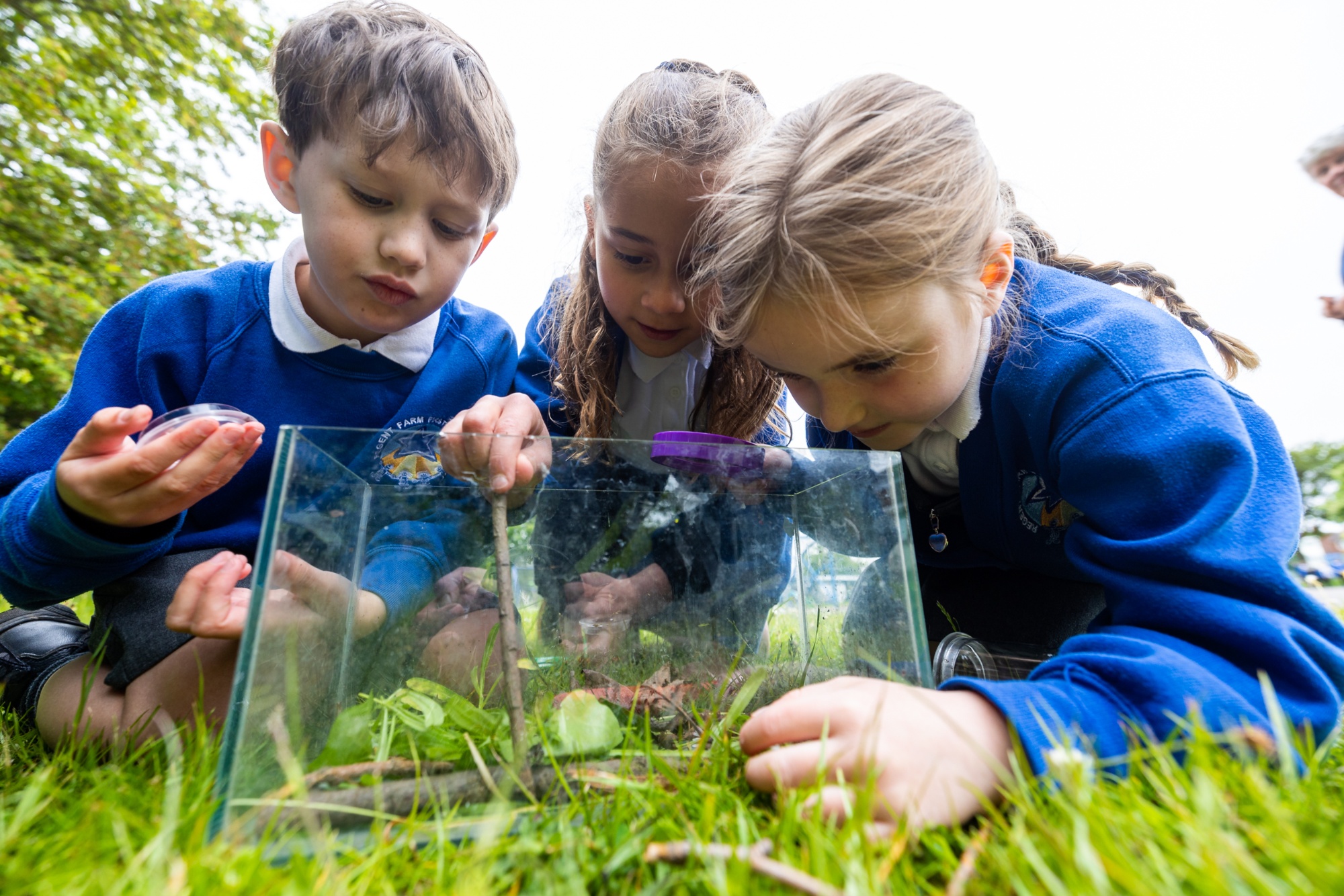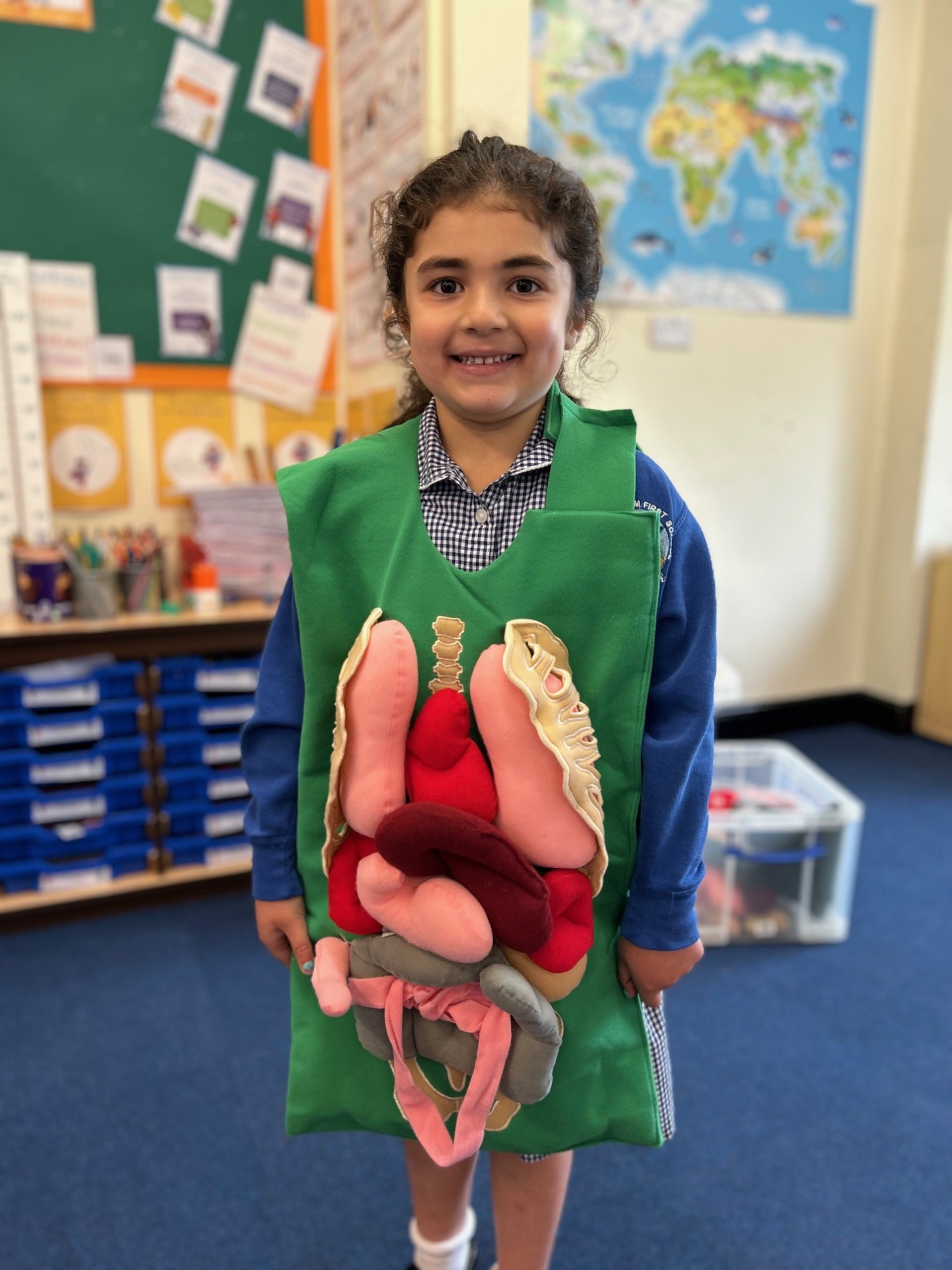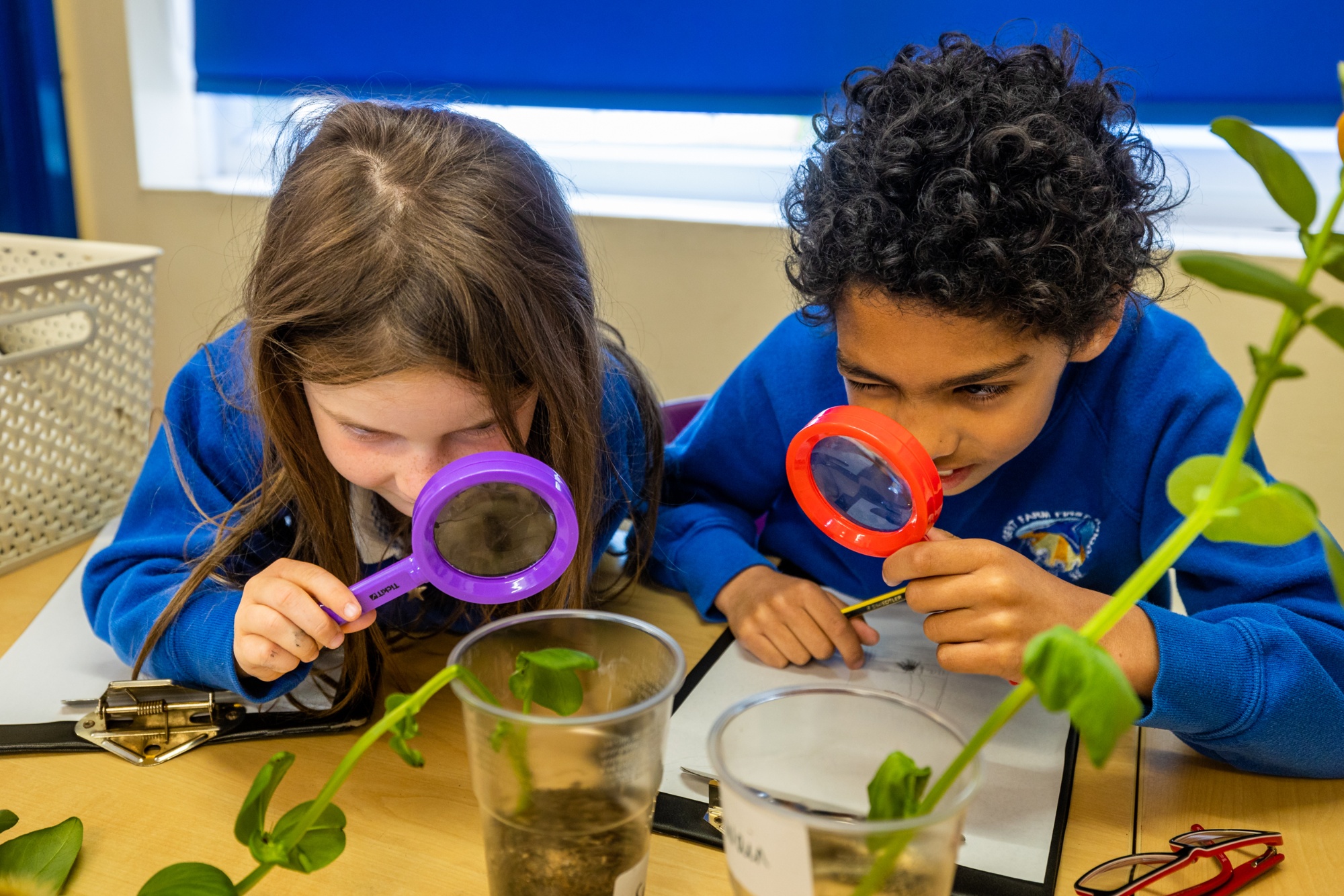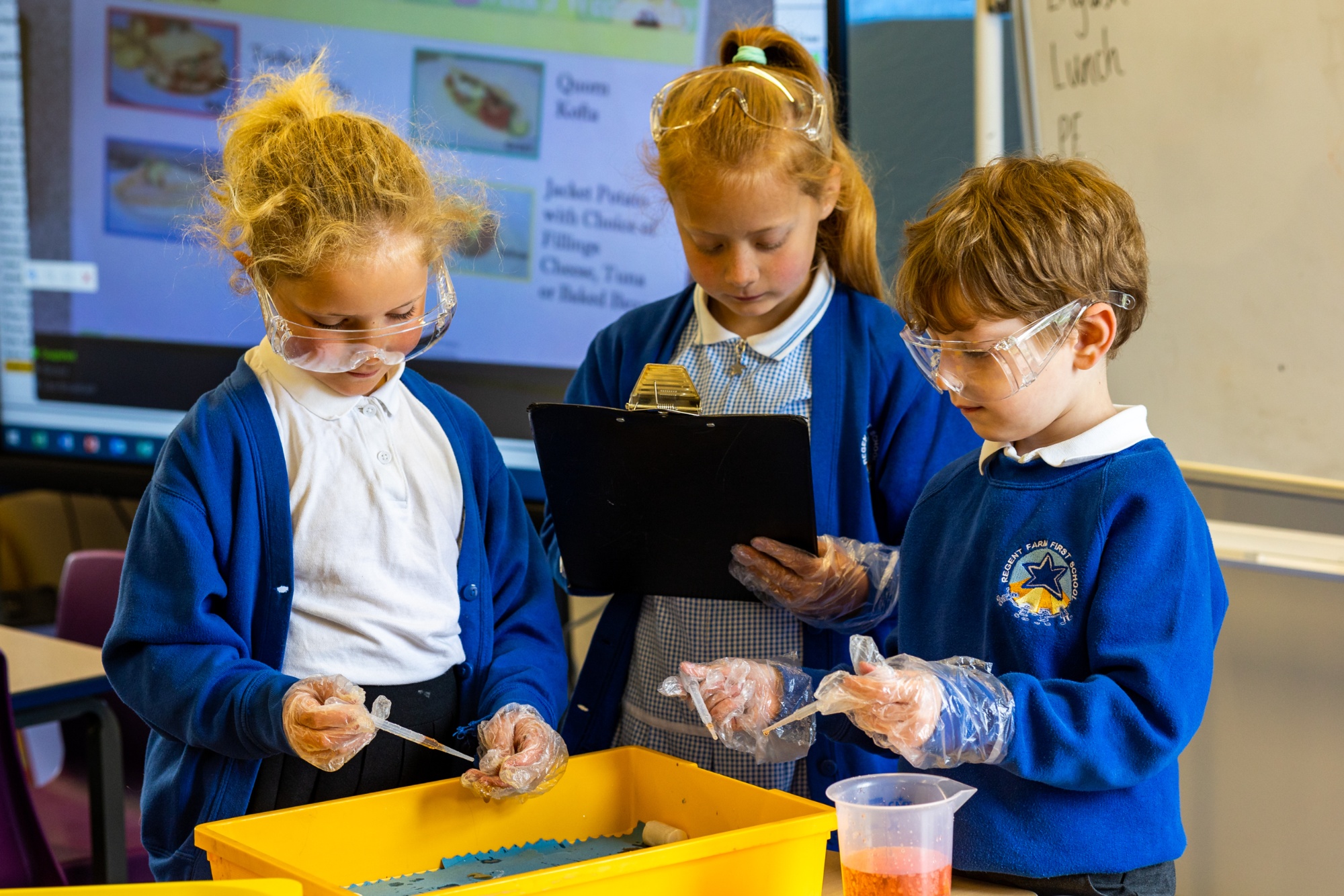Science
At Regent Farm First School, we understand that children are naturally curious, and we encourage this inquisitive nature throughout their time with us and beyond. Science fosters a healthy curiosity in children about our universe and promotes respect for the living and non-living. We believe science encompasses the acquisition of knowledge, concepts, skills and positive attitudes.
The 2014 National Curriculum for Science aims to ensure that all children:
- Develop scientific knowledge and conceptual understanding through the specific disciplines of biology, chemistry and physics.
- Develop understanding of the nature, processes and methods of science through different types of science enquiries that help them to answer scientific questions about the world around them.
- Are equipped with the scientific skills required to understand the uses and implications of science, today and for the future. We understand that it is important for lessons to have a skills-based focus, and that the knowledge can be taught through this.

In accordance with ‘Understanding the World’ in the Early Years Foundation Stage, and through the programmes of study in the National Curriculum science document, children will acquire and develop these skills throughout their time at Regent Farm. We ensure that the Working Scientifically skills are built-on and developed throughout their school career so that they can use equipment, conduct experiments, build arguments and explain concepts confidently and continue to ask questions and be curious about their surroundings.
How do we teach science?
To ensure high standards of teaching and learning in Science, we implement a curriculum that is progressive throughout the whole school based on White Rose Science. We plan to ensure full coverage of, ‘The National Curriculum programmes of study for Science 2014’ and, ‘Understanding of the World’ in the Early Years Foundation Stage. 
Science teaching at Regent Farm involves adapting and extending the curriculum to match all pupils’ needs. Where possible, Science is linked to class topics (for example, ‘Rocks’ and ‘The Stone Age’). Teachers also ensure that science learning in progressive with other areas of the curriculum. For example, the water cycle is taught prior to the geography unit on rivers. Through careful planning, teachers are fully aware of prior learning and this is clearly broken down and recorded when planning. Teachers are also aware of what children will be learning the next time they study a unit of science. This ensures that learning is specific to year groups in line with the National Curriculum objectives and that children are fully prepared to continue their science learning.
We ensure that all children are provided with rich learning experiences that aim to:
- Prepare our children for life in an increasingly scientific and technological world today and in the future.
- Help our children acquire a growing understanding of the nature, processes and methods of scientific ideas.
- Help develop and extend our children’s scientific concept of their world.
- Build on our children’s natural curiosity and developing a scientific approach to problems.
- Encouraging open-mindedness, self-assessment, perseverance and developing the skills of investigations – including: observing, measuring, predicting, hypothesising, experimenting, communicating, interpreting, explaining and evaluating.
- Develop the use of scientific language, recording and techniques.
- Develop the use of computing in investigating and recording.
- Make links between science and other subjects.
Science is taught consistently, once a week for up to two hours.
At Regent Farm First School we aspire to promote children’s independence and for all children to take responsibility in their own learning, therefore we have implemented self/teacher assessment sheets, which the children use as a working document to track their achievements and progress throughout a topic.

What is the impact of our science curriculum?
The successful approach at Regent Farm First School will result in a fun, engaging, high-quality science education, that provides children with the foundations for understanding the world.
Our engagement with the local environment ensures that children learn through varied and first-hand experiences of the world around them. So much of science lends itself to outdoor learning and so we provide children with opportunities to experience this. Through various workshops, trips and interactions with experts children have the understanding that science has changed our lives and that it is vital to the world’s future prosperity. Children at our school will overwhelmingly enjoy science, and this results in motivated learners.

